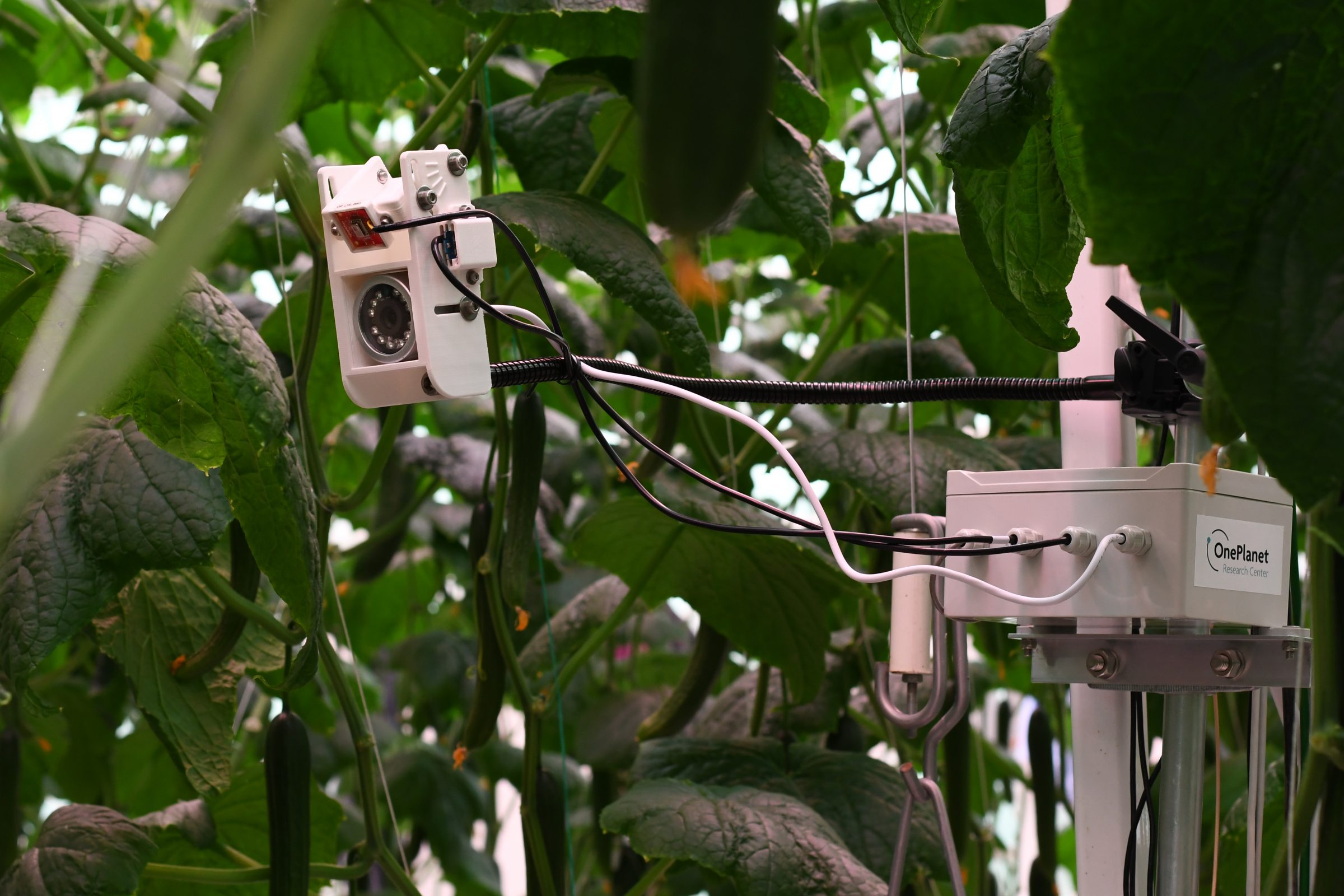Smart, sensor-based solutions will be a big step towards ultra-controlled greenhouse production that, in turn, will be a milestone in Indoor Autonomous Farming. The innovations developed will provide farmers and greenhouse management companies new opportunities for sustainable food production.
If we had the tools to fully automate crop cultivation in greenhouses, non-specialized workers would be able to perform basic greenhouse-management tasks, and enable professional practitioners and commercial greenhouse management companies to work more efficient, freeing them from repetitive and heavy labor. It would deliver farmers and plant scientists new insights to optimize plant health and production yields, and thus opportunities to make food production more sustainable. And it would allow food to be produced in urban locations, particularly where there is limited space, shortening the distance between producer and consumer.
Sensor-based, smart solutions
In Indoor Autonomous Farming, OnePlanet Research Center is developing a 3D sensor-based monitoring network and an integrated data platform that opens the way to autonomous greenhouse production and, in the longer term, fully-controlled vertical farming systems. The system might combine, for example, cameras measuring leaf temperature (an indicator of respiration) with RGB cameras that give insight into nutrient deficiencies and the early onset of plant diseases, and a whole range of other sensors throughout a greenhouse.
Conventionally, growth conditions are measured at only one location in the greenhouse. Sensors at different locations will provide farmers and greenhouse specialists additional insight into how a greenhouse functions – for example whether windows are opened and closed correctly, or whether the heating pipes are doing their job – and how plants respond to growth conditions in real time.

In this program, OnePlanet combines its expertise on high-tech sensors with a deep understanding of data-sciences, machine-learning, agriculture and food to address the complex issues that inevitably accompany radical innovation. How to combine and integrate the output of sensors located in different positions in a greenhouse, and how to link them, in real-time, with data on plant health? What kind of electronics will be durable and reliable in humid greenhouse conditions and will they need special protection? Novel sensors developed in another OnePlanet program, Emerging Sensing, will be validated in indoor farms, and linked to crop data in order to create models for improving crop health, yield and use of resources in indoor settings.
Towards an online platform
AGROS, the first research program in this innovation line, kicked-off in May 2020, funded by two Dutch Topsectors and with over 26 private partners. Cucumber plants are the first crop to be cultivated, using a smart sensor network prototype that includes measurement of greenhouse atmosphere and humidity, and thermal and hyperspectral imaging that provides pictures of individual plant health. First measurement outcomes using the sensor protoype show agreement with reference sensors. By 2026, the data collected will be integrated into an online platform that allows autonomous control of greenhouse climate and fertigation.